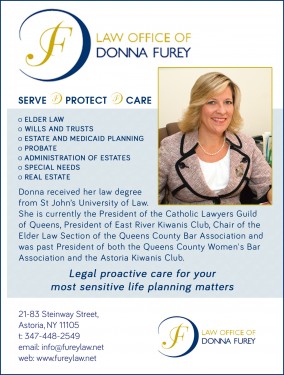Will
A will is a legally binding statement that instructs who will receive property at a person’s death and appoints a legal representative to carry out these wishes. A will only covers probate property and not joint property, trust property or life insurance proceeds.
Probate/Estate Administration
When the assets of a decedent are in the person’s name alone, a petition for probate or administration is usually filed with the court to enable the executor or administrator of the estate to collect and distribute the asset.
It is called probate when you file a will with the court. It is called administration when there is no will to file with the court.
Estate Tax
The estate tax applies to both the probate and non-probate property of the decedent. For the federal government, the amount of assets that pass free from estate taxes is currently $5,430,000.00 per person. As of April 1, 2015, the New York State estate tax threshold is $3,125,000.00 per person.
Marital Deduction
On the federal level, anything passing to the surviving spouse of the decedent is not included in the taxable estate and consequently, is not subject to taxation.
All of the couple’s assets are then taxed upon the death of the surviving spouse, unless an estate tax plan has been put into place.
Trust
A trust is a legal entity under which the trustee holds legal title to property for the benefit of beneficiaries.
Trusts are often used for tax and Medicaid planning and to avoid probate/administration in court.
Durable Power of Attorney
Under a power of attorney, a person may appoint someone else to act on his or her behalf when he or she is unable to do so either because of mental incapability or the inability to be somewhere when needed.
The appointee, the “attorney-in-fact,” should be someone trusted to act in the person’s best interest and make choices he or she would make if he or she was able to do so.

